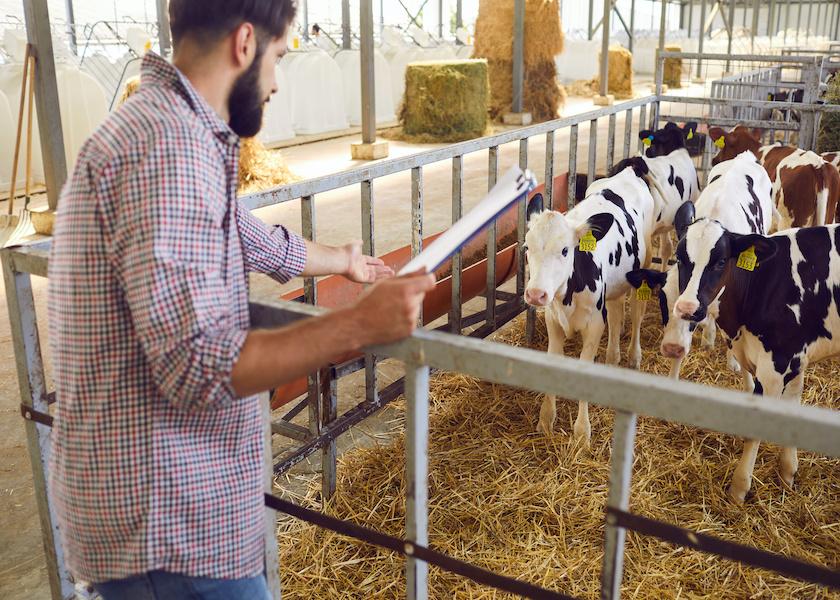Calf Microbial Supplements: Sorting out the “Pre,” the “Pro,” and the “Post”

We’re learning more about the relationship between the promotion of “good” digestive bacteria and overall health in both human and veterinary medicine. You may even take a probiotic yourself, and possibly include one or more in your calves’ rations. But did you know there’s also something called a “prebiotic?” And what is a “postbiotic?”
An in-depth description of each class of microbial supplements was shared by Dr. Lautaro Rostall Cangiano, Assistant Professor of Animals Science at the University of Wisconsin-Madison, on a recent episode of the “Dairy Nutrition Blackbelt” podcast.
Cangiano offered the following descriptions of different classes of products within the microbial supplement space:
Prebiotics – These are products used as a substrate by specific bacteria in the gut, rumen, or lower intestine to fuel the growth of favorable bacteria. The goal of feeding prebiotics is to target specific groups of bacteria that are going to either confer a specific function for the host, or improve fiber digestibility or overall gut health.
Probiotics – These are live organisms – either bacteria or yeast – that augment specific functions. Examples of their actions are helping boost the population of favorable bacteria in the rumen; improving fiber digestibility in the lower gut; or acting on gut health by improving the gut mucosa or stimulating production of some compounds that promote gut health overall. Because probiotics are living organisms, they require careful storage and handling, and must be fed every day. This regular delivery is necessary because the organisms do not reside in the gut or become established over time.
Postbiotics – These are fermented products of a yeast or specific bacteria. The yeast or bacteria are already dead, but specific, desirable cell components of those organisms remain in the fermented product. Those cell components are selected to confer a benefit to the host’s digestive system.
Cangiano noted that responses by calves tend to be more pronounced in terms of gut health versus weight gain. “Don’t expect, if you’re feeding these products, to see a very dramatic increase in growth from those animals,” he stated. “You can expect to see maybe 100-200 grams per day with yeast products.”
In terms of calf health, he said the herds with the highest prevalence of diarrhea will see the most dramatic results. “These products can be very beneficial if you’re having regular bouts of diarrhea,” Cangiano observed.
When these microbial products are fed in milk, he said they typically influence the lower gut and improve aspects of gut health. When fed in starter grain, they usually target rumen development and fiber digestibility.
Cangiano advised starting microbial feeding on the first day of life, when the calf’s gut population is more of a “blank slate.” “When a calf is born, the gut is rapidly colonized,” he explained. “It is much harder to modify the microbial community once it becomes established. So feed these products as early as you can.”
In addition to gut health, the researcher said exciting new developments are beginning to emerge showing the beneficial effects of microbial supplements on other body systems. He cited a study published recently in the Journal of Dairy Science by a team of researchers at Iowa State University that showed improvements in respiratory vaccine response in calves receiving Saccharomyces cerevisiae fermentation postbiotic products.
“There seems to be an improvement in the gut mucosa at the local level that also is transmitted to the lungs,” said Cangiano. “It leads us to believe that the postbiotic stimulates the development of the complete mucosal immune system.”
Cangiano concluded there are some exciting prospects in improving calf health and performance with microbial supplements, but cautioned there also is a great deal of variability between products on the market.







